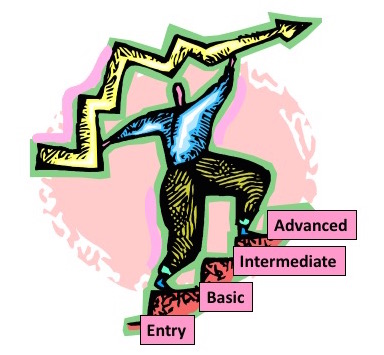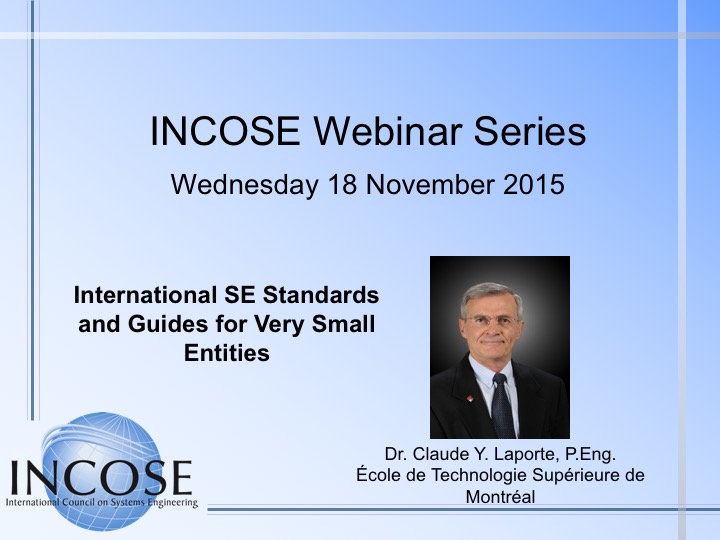ISO/IEC 29110 - English
Résumé de section
-
The set of ISO/IEC 29110 Standards and Guides has been developed to meet the need of Very Small Entities (VSEs) that develop non-critical systems or software products.
Systems, in the context of ISO 29110, are typically composed of hardware and software components.
A VSE is an entity (enterprise, organization, department or project) having up to 25 people.
ISO 29110 is intended to be used with any lifecycle such as waterfall, iterative, incremental, evolutionary or agile.
A first four-stage ISO 29110 roadmap has been developed for VSEs that do not develop critical systems: Entry, Basic, Intermediate, Advanced. VSEs targeted by the Entry profile are those working on small projects (e.g., at most six person-months of effort) and for start-ups. The Basic profile describes the development practices of a single application by a single project team. The Intermediate profile is targeted at VSEs developing multiple projects with more than one team. The Advanced profile is targeted at VSEs wishing to sustain and grow as independent competitive businesses.

-
ISO 29110 provides management and engineering guides that describe processes, activities, tasks, content of artefacts and roles.
Using a software management and engineering guide, a VSE can obtain benefits in the following aspects:
- An agreed set of project requirements and expected products is delivered to the Customer.
- A disciplined management process that provides project visibility and corrective actions of project problems and deviations is performed.
- A systematic software implementation process that satisfies Customer needs and ensures quality products is followed.
-
Systems, in the context of ISO 29110, are typically composed of hardware and software components.
ISO 29110 provides management and engineering guides that describe processes, activities, tasks, content of artefacts and roles.
Using a management and engineering guide, a VSE can obtain benefits in the following aspects:
- An agreed set of project requirements (technical part of contract) and expected products are agreed by the Acquirer.
- A disciplined management process, that provides project visibility and corrective actions of project problems and deviations, is performed.
- A systematic System Definition and Realization process, that satisfies Acquirer needs and ensures quality products, is followed.
-
Very small entities, organizations with up to 25 people, are very important to the worldwide economy. However, such organizations often do not utilize existing engineering and management standards and frameworks. To address the needs of Very Small Entities, a set of international standards and guides, the ISO/IEC 29110 series, has been developed using the systems and software engineering lifecycle standards ISO/IEC/IEEE 15288 and ISO/IEC/IEEE 12207 as the main frameworks. In addition, a series of deployment packages, developed by members of the INCOSE VSE WG, to facilitate the implementation of the ISO/IEC 29110, are discussed. Pilot projects, using the ISO/IEC 29110 freely available management and engineering guides, are presented as well as a cost and savings analysis. Finally, a certification scheme is discussed as well as the future developments.

- An agreed set of project requirements (technical part of contract) and expected products are agreed by the Acquirer.
-
In order to facilitate the implementation, by VSEs, of a Profile, a set of Deployment Packages (DPs) are available.
A deployment package is a set of artefacts developed to facilitate the implementation of a set of practices, of the selected framework, in a VSE. But, a deployment package is not a complete process reference model.Deployment packages are not intended to preclude or discourage the use of additional guidelines that VSEs find useful.
The DPs of the Basic Profile are illustrated below.

-
Service delivery Guide provides guidance to VSEs for the effective and efficient management of services delivered to internal or external customers.
